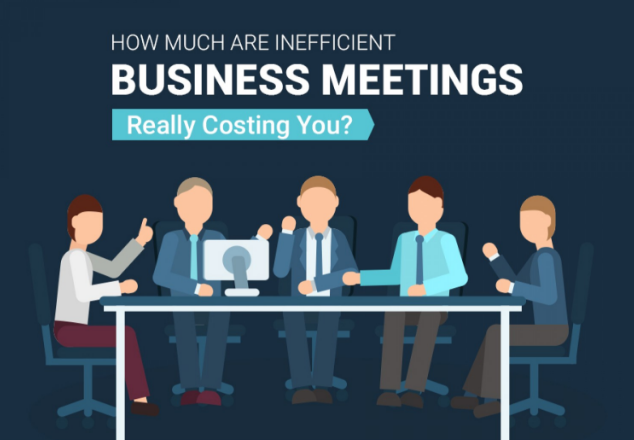The Right Story for Every Meeting
We’ve all experienced the power of storytelling. A great story can inspire and move us in ways that spreadsheets or presentations full of bulleted lists never will.
We are wired to learn from stories. And yet, only a few rare leaders regularly tell stories in meetings. Most leaders limit themselves to dry information sharing and opinion statements, holding to a mistaken belief that storytelling is somehow unprofessional. But unlike most reports, a good story communicates both data and meaning simultaneously, which makes stories more efficient and effective.
Storytelling isn’t unprofessional. Wasting people’s time and attention is unprofessional. That’s why you need to know which stories to tell and when to tell them.
We explored the question of why you should tell stories in your meetings and how to pick the right kind of story for each type of meeting in a recent webinar. Here you’ll find the recording, highlights from our discussion, and a handful of helpful links.
Our Presenters
Paul Smith

Paul Smith is one of the world’s leading experts in business storytelling. He’s one of Inc. Magazine’s Top 100 Leadership Speakers of 2018, a storytelling coach, and bestselling author of the books The 10 Stories Great Leaders Tell, Four Days with Kenny Tedford, Sell with a Story (#1 bestseller in Amazon’s Sales and Selling category), Parenting with a Story, and Lead with a Story (#1 bestseller in Amazon’s Business Communication category) already in its 11th printing and available in 7 languages around the world. Paul is also a former consultant at Accenture and former executive and 20-year veteran of The Procter & Gamble Company.
Elise Keith

J. Elise Keith is the founder and CEO of Lucid Meetings, the author of Where the Action Is: The Meetings That Make or Break Your Organization, and a regular contributor for Inc. and other publications.
The Five Types of Meetings Leaders Need to Master
Introductions
Elise describes Introductions starting at 10:46.
There are two types of stories everyone in your business should be prepared to share in an Introduction.
- A personal story. Hear Paul explain why this is key for quickly developing trust starting at 11:35.
- A founding story. Hear Paul’s example starting at 13:05.
Team Cadence Meetings
Elise explains Team Cadence meetings starting at 17:40.
These are the most common and often the worst run meetings in organizations today. Why? Leaders schedule and run these meetings to work well for the leader, usually without realizing how boring and wasteful that can be for everyone else.
Hear Paul share a story about how one leader realized she needed to run better team cadence meetings starting at 18:18.
The best team cadence meetings get the whole team involved. One great way to do that is by having team members take turns telling useful stories.
Hear Paul’s idea for collecting stories in team meetings starting at 22:55.
Broadcast Meetings
Elise describes Broadcast meetings starting at 25:57.
There are 10 stories every leader should have in their toolkit. These might all be useful in Broadcast Meetings. Paul’s short book, The 10 Stories Great Leaders Tell, includes examples of each one.
The 10 types of stories are:
- Where we came from (see the Founding Story above)
- Why we can’t stay here (a case for change)
- Where we’re going (a vision story)
- How we’re going to get there (a strategy story)
- What we believe (a values story)
- Who we serve (a customer story) Hear Paul’s example starting at 32:05.
- What we do for our customers (a sales case-study story)
- How we’re different from our competitors (a marketing story)
- Why I lead the way I do (a leadership philosophy story) Hear Paul’s example starting at 37:35.
- Why you should want to work here (a recruiting story)
Governance Cadence
Elise describes Governance Cadence meetings starting at 43:15.
In Governance Cadence meetings, you’re working to help busy people make important decisions for and about your business. These people, whether they’re board members, auditors, customers, or other governing groups, aren’t necessarily involved in the day-to-day workings of your business.
For these meetings, it’s useful to share stories that pack in the main details quickly, then tie your current situation to a strong metaphor that will help everyone grasp your key point.
Hear Paul’s example of a great use of story + metaphor starting at 44:50.
Problem Solving
Elise describes Problem Solving meetings starting at 51:33.
When you need to quickly come up with lots of great options in a problem solving meeting, consider first telling a story that gets people thinking creatively. These stories don’t have to even be from your business or industry; in fact, it’s often more useful to tell a story from a completely different kind of organization.
Hear Paul’s example “thinking outside the box” story starting at 53:15.
Final Take Away
As I worked with Paul on this webinar, I began to see stories in a new way. In the past, I’d shared business stories when writing or public speaking, but I hadn’t considered the power of preparing stories for use outside of these traditional business storytelling moments.
My takeaway was this: if we take the time to craft the key stories Paul recommends–especially those ten types that work well for Broadcasts–we make life easier for everyone in the company.
Sales, developers, customer service, consultants, advisors, marketing – every one of the people in these roles can more easily understand and share what we do when they’ve got a great story that brings it to life.
I’m taking this as an opportunity to step back and sharpen my story-telling saw, so going forward, everyone at Lucid can use stories to work faster, better, and more joyfully.
What about you? What was your take away from this session?



